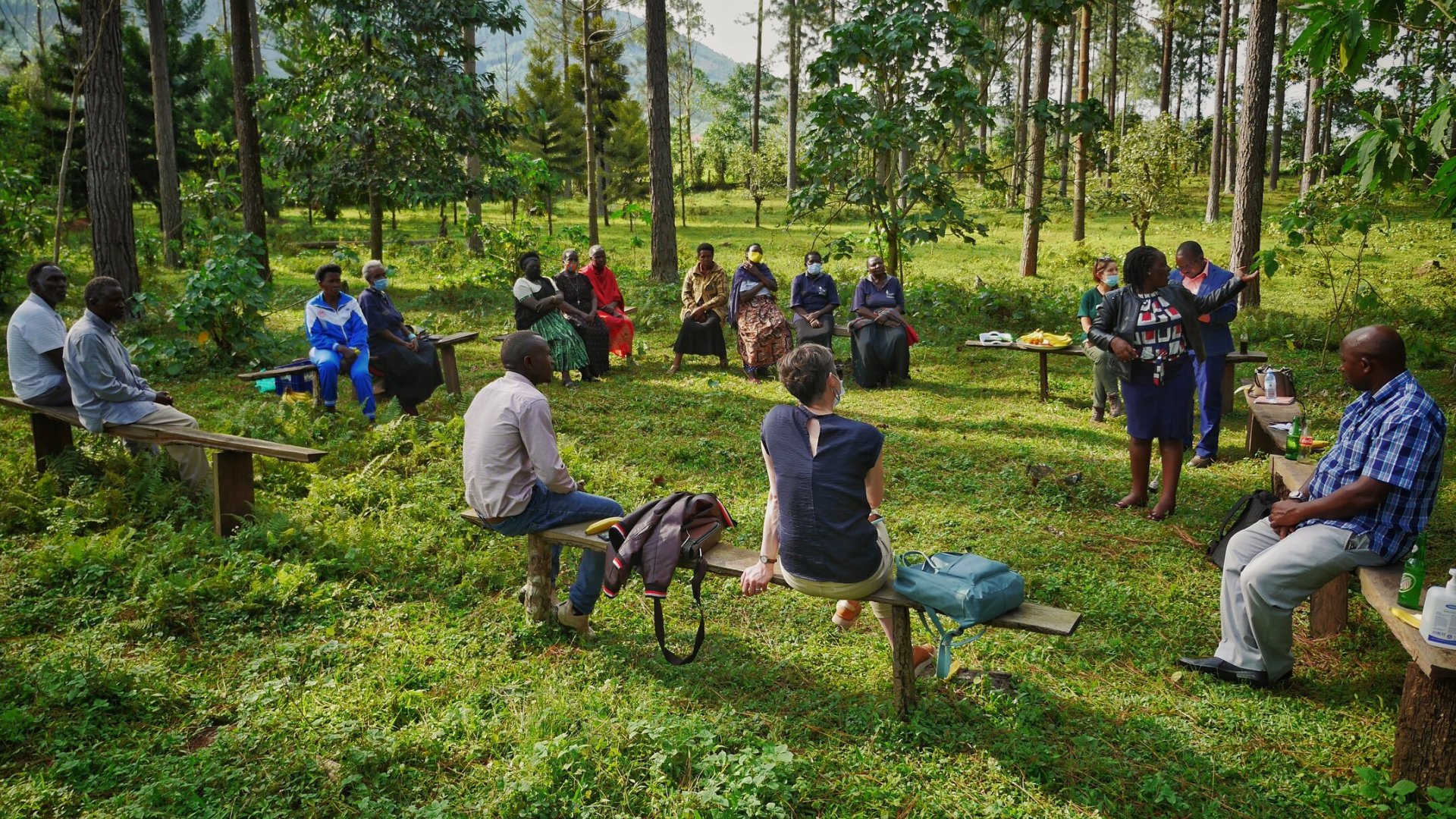Calling for scalable climate solutions at Sankalp Nairobi
The Dutch Fund for Climate and Development (DFCD) team were among the participants hosted at the main plenary session, Getting to Nature Positive through Local Communities, in addition to hosting its own session: Developing green climate solutions towards investment-readiness.
The Sankalp Forum is the most comprehensive convening of major stakeholders in Africa and India’s innovation ecosystems – from entrepreneurs and investors, to family foundations, large multi-national corporations, local angels, and international investors. The forum is not only key for networking for like-minded business but serves as a ripe ground for investment firms such as the DFCD to secure prospective business to grow their investment portfolio in Africa.
Local communities play a huge role in the fight against climate change, Tigere Muzenda, Regional Investment Manager for DFCD Africa, explained during the main plenary session. ” DFCD through SNV has been working with individuals and farmer groups to promote climate smart agriculture. This improves yields, which raises household incomes as part of our commitment to the fight against climate change.”
Ian Isherwood from WWF Kenya reiterated this: “Kenya has been experiencing drought in recent times and in our efforts to boost food security and tackle drought we are keen to ensure the uptake of drought resistance crops in the country.”
Private investments
Alongside local communities, Muzenda sees an important role for the private sector’s involvement. This sector supports about 70% of the national income in most African countries. “The DFCD has a mandate to support the private sector and support them to become commercially viable so they can get to a place where they stand alone to deliver resilience and sustainability particularly for women and youth empowerment.”
The DFCD sees Africa as one of the main parts of the world it wants to invest in, Aart Mulder, Portfolio manager for climate change at FMO, explained. ”We have invested in 28 projects in the most vulnerable regions, and we are keen to do more in Zambia and Tanzania. We want to find development activities towards long term financial solutions.” The Dutch government has dedicated 160 million Euros to the DFCD consortium to promote resilience in communities by promoting climate mitigation and adaptation.
Bankable Nature Solutions
That money will contribute to closing the gap between the financing of the Sustainable Development Goals (SDGs) and the money that is invested right now. ‘There is only a third of the money that is required to meet these goals, with a gap of 2,5 trillion dollars per year that is not being financed at the moment’, WWF’s Isherwood explained in the online session at Sankalp. He noted that the time has come to redirect finance flow to more sustainable financing and the need for ‘Bankable Nature Solutions’. “Projects that create a positive impact on people and nature at a landscape level and generate a financial return acceptable to investors,” Isherwood explained.
Not only does the fund invest themselves, they also want to partner with investors to de-risk their projects in order to make their projects more attractive to financers. Due to the recent events of Covid-19, new funding opportunities had come up and reiterated the DFCD’s mandate to do so.
Experiences working with the DFCD
Responding to an audience of about 200 people, the DFCD team also shared experiences from partners they have worked with since 2019.
- Solar Water Solutions in Kenya who are tapping into solar power to promote the provision of clean water (through desalination) and improve women’s livelihoods, ensuring they did not walk for long distances in search of water.
- SokoFresh is another project, who are working to reduce post-harvest food losses by providing mobile cold refrigeration services to vulnerable communities and provide farmers with direct market access, eliminating broker services.
- Based in Uganda, Peter Nyeko is the managing director of Mandulis Energy, which pioneered private sector led development of on-grid and off-grid renewable energy infrastructure. Mandulis was the winner of the Scalable Climate Solutions Challenge at COP26 in 2021.
Nyeko shared his experience during the Sankalp session working with the DFCD: “The DFCD gave us an opportunity to pitch for additional funding that would enable us to scale our business and double impact. Through the Scalable Climate Solutions, we were able to get an additional 100,000 Euros that enables us to expand to the East and Southern Africa regions,” he said.
Sharing knowledge and experience
The DFCD team also shared some of their own lessons learned during their operations in the country. Muzenda: “There is a misconception of climate finance as free money. We work hard to make businesses investment ready, that involves a lot of commitment from the projects.”
The medium to low adoption rate for climate smart agriculture in Kenya, and the limited involvement in local financial intuitions in green finance are some other observations highlighted by the team.
The team is already working with other stakeholders to address these observations and remains optimistic that the fight against climate change is possible and sustainable. What is most needed for that is stakeholders joining efforts to create more awareness on climate change, adaptation, and the different financing avenues. Knowledge sharing is key not just for farmers and investors, but also with governments to ensure crucial policies are passed that create an enabling environment for investors. bas

